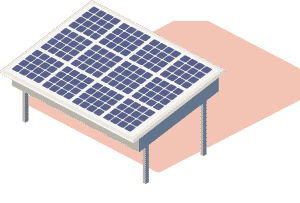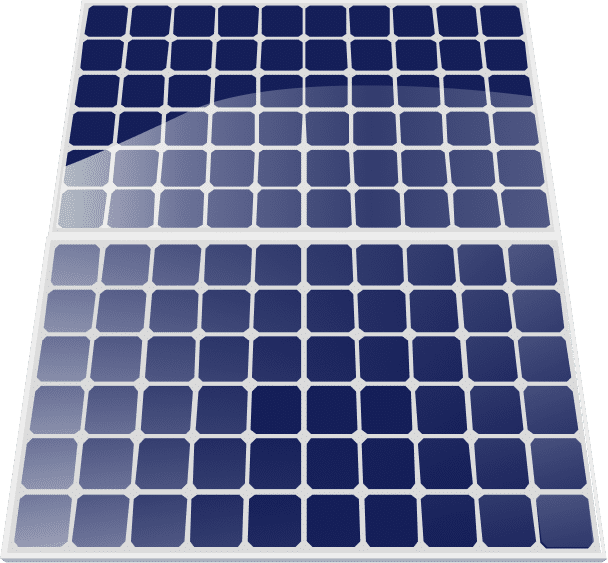Investing in Solar Energy

Investing in Solar Energy
It is possible to save cash by investing in solar energy. It’s all dependent on where you live the incentives available by your state, and what type of system you select.
You’ll need to request a quote for your solar panel installation to determine the anticipated solar panel ROI. The savings can be significant regardless of your individual circumstances. A 5-kilowatt solar system can provide a lifetime savings of more than $38,000 in Oregon and $70,000 in Nevada. They are not the same numbers but still represent a remarkable return on investment in solar panel systems.
Is solar energy expensive?
It is not easy to decide whether you want to make a decision on whether you want to invest in your home, particularly if you are not familiar with solar. Many homeowners are uncertain regarding how to set up solar panels, what they costs, and even what they will appear like. We get asked the most frequent concerns: “Is solar power expensive?” “Is it worth the investment?” And “Can it be financed?” “.
These are important questions to ask because solar is likely to be just one of many investment options that you will be considering in a given year. One option is to think about the purchase of a new car or tuition, or medical treatment. What can you do to determine whether solar is costly or at the right price?
What will it cost to go solar?
The typical rooftop solar array within the United States has a capacity of 5 kW. With \$2.98 per Watt the cost for a device will be \$2.98 (the lowest price in history). That means that the average solar installation will cost you around \$14,900. That’s about the same as a new economy sedan. The federal solar Investment Tax Credit (ITC) gives you 30% off of solar installation costs, if you do not lease. It could reduce the{ average|| total} cost down to $10,430.
The cost of solar panels for residential homes is falling, but waiting for it to become cheaper could be a bad idea. Consider how long you intend to stay in your house and other aspects like whether or not the tax credits will expire or extend (currently extended to 2022).

Are solar energy payments taxable?
What is an income tax credit?
A tax credit is a reduction of the income tax you would otherwise have to pay dollar for dollar. A $1,000 federal tax credit could reduce your federal income taxes by $1000. Although the federal credit is sometimes referred to as ITC as an Investment Tax Credit, this is not the same as the ITC accessible to solar-powered businesses.

What is the federal solar credit?
Federal residential solar energy credit is a tax credit when filing federal income tax. It is for a certain percentage of the price of the solar PV system. Other forms of renewable energy may also be eligible for credits similar to this, but they are not included in this guideline.
The system must be operating in the tax year to generate electricity for homes within the United States. The IRS does not have a clear-cut test for what constitutes “placed into service,” although it does define the phrase”placed into service” as a completed installation.
Congress authorized an extension of the ITC in December 2020. It grants 26% tax credit for systems that were installed between 2020-2022 and 22% to those that were installed between 2023-2023. Systems installed prior to the 31st of December, 2019 were eligible for a 30% credit. Unless Congress renews the credit in 2024, the tax credit will expire in 2024.
There is no limit to the amount you can claim.
Am I eligible to claim the federal solar tax credit?
If you meet the requirements listed below You may be qualified to receive this tax credit.
- Beginning on January 1, 2006, and December 31, 2023, the solar PV system was installed.
- If the power produced by the solar PV system doesn’t exceed your home’s electricity use the system can be credited towards your home’s main or secondary home. Taxpayers can get an exemption under section 25D from the IRS for purchasing a portion of a community-scale solar project.
- This solar system you own (i.e. you bought it using cash or with financing, however, you’re not leasing the system nor in an arrangement to buy electricity from a system you do not own).
- This solar system is new or in its first use. Only the original installation of the solar equipment is acceptable to be credited.
Are tax credits for solar energy refundable?
Are you seeing your employer putting off taxes?
A majority Americans have their employers automatically collect the taxes on their paychecks. It’s much easier to calculate your tax bill at year’s end than having to work as your own accountant. The amount of tax you pay back will vary depending on your income, however the majority of people will pay hundreds or thousands of dollars of income tax.
The ITC is here to assist. The ITC will cover 26,4 percent of installation cost not just the panels but also the solar components like your inverter and the racking system. It can also cover the battery backup system such as that of the Tesla Powerwall, provided that you make use of renewable energy to charge the battery. There is no cap on the amount of federal ITC’s dollars.
Let’s say you have a \$20,000 solar installation. Let’s assume you have a solar installation valued at $20,000. It is the federal ITC is a $5,200 tax credit. When all your taxes are calculated this credit is added to the amount due, which reduces the amount of tax owed by $5,000.
You’ll be liable for 14 605.50 in federal taxes If you earn $85,526 a year (the minimum amount to be taxed in the federal fourth income bracket). The tax amount will be taken from your paycheck through your workplace. The amount you would owe is $9405.50 in the event that you were to have the Federal ITC estimated at $5,000.
You will have to pay back the $5,200 that your employer took from you. You will get the tax refund of $5,200. It’s basically a reimbursement.
What happens if there's still credit?
However, there are situations in which the solar ITC cannot provide you with a a full refund. The amount of $5,200 that was used to pay tax due of $3,000 will not be returned. Instead the credit will reduce the amount you owe to $0 and you will receive $3,000 back. Then, it will carry over to the next year, and you will be able to apply any remaining federal ITC to your taxes.
This is a significant difference to a refundable credit tax credit. A refundable credit would allow you to claim $3,000 in the event that you spent less than $5,200. The IRS would then send you a check for $2200.
You must owe income taxes to get the most benefit from Federal solar tax credit returns. The solar tax credit is non-refundable and you will not be able to get any income tax if you are receiving Social Security benefits or the source of your income.
Shneyder Solar discourages people from making the switch to solar if they don’t have federal income tax to pay. Solar panels have become more affordable in recent years due to the ITC. Your solar installation is more expensive even without tax incentives.
Are solar energy stocks a good investment?
Based on the Shneyder Solar, the average solar investment tax credit (ITC) was first introduced in the year 2006. It has led to the growth rate of 52% per year. rate. Furthermore, the growing demand is likely to result in increased profits for solar companies.
Shneyder Solar is a convenient way to invest in the sector of solar energy. This company makes solar power products, equipment for end users, and equipment for solar panel makers and solar installers or businesses that specialize in solar cell manufacturing. The fund’s returns were -15.59 percent on a calendar-year basis, and 41.10 percent over a three-year period.
How does solar energy save money?
You might be skeptical when you look at the cost that is initially associated with solar energy. Solar panels are a good investment, and they can pay for themselves over time. The environmental benefits that solar panels bring are well worth the investment. Shneyder Solar is passionate to educate you about renewable energy sources. We’ve put together{ a list of|| the following} three ways solar power can save you money. Visit our site to receive an instant quote if are considering switching to solar power.
Reduce or eliminate your electric bill
Your energy usage average and the number of panels are available to your home can impact the cost of your electricity bill. Electricity is the largest monthly expense for American households. A few years without paying electricity will soon pay off the initial costs of installation. If your aim is to become energy independent you can reduce your expenses and only use your local grid when you need to. It’s easier than ever to bring your electric bill in check thanks to advancements in batteries and backup generators.
Tax incentives
Any commercial or residential home owner that invests in their own solar power systems may qualify for tax incentives from the U.S. Government and some state governments. The incentives were once at times as high as 26% but will drop to 22 percent by 2020. These incentives are meant to offset the initial cost for solar energy and help make it more affordable for homeowners to take advantage of solar energy.
An investment with a high return
Many reasons make solar power is an excellent investment. Solar panels can increase the equity of your house especially in states that are supportive of renewable energy sources. It is also possible to invest in the rapidly growing solar industry , and also support local solar firms like Shneyder Solar. Although solar energy has been able to be purchased for less in the past few years, the cost of nuclear energy is still costly. Newer, better technology is continually being developed in the solar field. Solar panels can last for a long time and don’t need regular maintenance. Solar panels last for a long time when you care for them. You might convince your neighbors to change to solar power that can contribute to a better future for the planet.
What solar energy companies to invest in?
Many people and businesses wish to lower their carbon footprints. Solar energy is becoming increasingly popular alternative in comparison to natural gas and oil. From 2014 on, the price of solar panels fell 70 percent. It is anticipated that over one-seventh percent of homes will have rooftop solar panels by 2030. It is expected that the U.S. government will also increase its solar energy programs.
Solar energy is becoming more well-known across America as well as across the globe. This is not surprising since solar-related stocks have become a popular investment. These stocks offer investors long-term benefits, since the field of renewable energy is predicted to expand rapidly in the near future. While solar energy stocks are fluctuating as the sector is still expanding but they remain a popular investment option for many investors as the country shifts away from fossil fuels and towards renewable resources.
You can reduce your electric bill , or eliminate it entirely, offset any carbon emission, enhance you value for your house, and be completely or partially energy-free by switching to solar power. Shneyder Solar will make your transition to solar power seamless and easy. Our licensed solar technicians will install a reliable solar system. Shneyder Solar is the ideal choice if you’re seeking to make the switch to solar energy. To get a no-cost quote make a call (800) or go to our site!
GET YOUR FREE PROPOSAL IN A FEW EASY STEPS
Fill out the form and our sales consultant will contact you! Once you’ve had your initial consultation, you’ll begin your solar journey.
